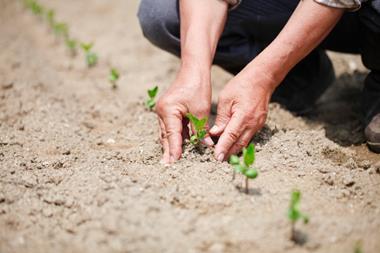Companies must remain vigilant as the situation deteriorates rapidly in Poland, the Czech Republic, and Russia
The independence of law courts around the world is coming under increasing threat from governments willing to eschew the separation of powers in favour of a politicised judiciary, according to Verisk Maplecroft.
Its Judicial Independence Index has identified growing government interference in the legal systems of 45 countries since 2017, a trend which is undermining the rights of citizens and comes at the expense of a level playing field for businesses.
The data shows significant increases in risk to the independence of the judiciary across all continents, but the situation has deteriorated most rapidly in Poland, Venezuela, China, the Czech Republic, and Russia.
The study, which forms part of the company’s 2021 Human Rights Outlook, identifies declining judicial independence as a cross-cutting risk.
“For companies operating in ‘high’ risk countries this could mean a lack of recourse in the event of contract renegotiations, or the expropriation of property; or even unfair legal sanctions from host governments imposed to punish perceived slights or to achieve geopolitical aims,” says Capucine May, the analyst who led on the research for Verisk Maplecroft.
“It also undermines the protection of human rights by enabling states to target political opposition groups, activists and journalists with legal penalties.”
Companies must remain vigilant
“As judicial independence comes under threat, so too do the predictable freedoms of those who are not aligned with the stance of the state, including opposition activists, reporters, political figures, and judges,” adds May.
”“Companies on the wrong side of the political or geopolitical fence in ‘high’ risk countries will certainly be at a disadvantage, while deteriorating human rights conditions pose real risks to the operating environment and the ESG profiles of companies deemed to be working alongside the worst performing governments.”
Threats to judicial independence seen across all regimes
In the new 2021 edition of the Judicial Independence Index, which assesses the separation of powers, and improper influence in the appointment of judges and legal rulings in 198 countries, the 10 highest risk countries primarily feature authoritarian states. These include North Korea (ranked 1st), Cuba, Laos, and, perhaps most significantly, China, which has replaced Iran as the third riskiest country globally in 2021.
However, rising threats to judicial independence have been witnessed across all regime types. As well as traditional authoritarian countries, such as China and Russia, the data also points to a deterioration in semi-consolidated democracies like Poland, and even consolidated democracies such as the Czech Republic and Switzerland.
Poland, a fragile and backsliding democracy, has witnessed the steepest decline in judicial independence of any country in the last four years, dropping from 118th to 61st in the global ranking to overtake Hungary as the worst performing country in the EU.
Since 2018, the ruling Law and Justice party’s judicial reforms have heightened the risk of political intervention in the selection and dismissal of judges.
The reforms have been denounced as illegal by the EU Court of Justice and driven Brussel’s recent decision to withhold energy transition funds from Poland. Poland’s Constitutional Court, considered to be heavily pro-government, recently ruled against the primacy of EU law, presenting a serious and direct threat to the rule of law order of the EU.
In established democracies, the decline is driven primarily by ties between business and politics, where judicial independence is challenged in attempts to protect corporate interests.
A notable example of this was seen in the Czech Republic, (ranked 135th, down from 180th in 2017), where Prime Minister Andrej Babis threatened judicial independence in the fight to protect his personal assets.
Beijing, Moscow entrenching political power with greater grip on the courts
For authoritarian countries, such as Russia and China, the decline points to a consolidation of power by political leaders.
Russia’s poor judicial independence was exacerbated in August 2020 by the introduction of a legal modification that gave the president authority to request the termination of judges’ tenures – placing foreign businesses, NGOs and opposition activists at the mercy of politically biased courts and prompting Russia’s drop from 44th to 15th highest risk on the global ranking.
Rather than being damaged by a single event, the independence of courts in China has been consistently ground down since a 2018 constitutional amendment that saw the Chinese Communist Party (CCP) strengthen its already-tight grip on the judiciary. As a result, China dropped from 33rd in the 2018 index to 3rd highest risk globally in 2021.
Although the Chinese constitution still technically mandates that the courts should be independent, judges are expected to align with and submit to the Party’s dictates. This ensures that the legal system remains firmly subservient to the CCP and leaves businesses and individuals in a precarious position if they do not toe Beijing’s political line.




















No comments yet